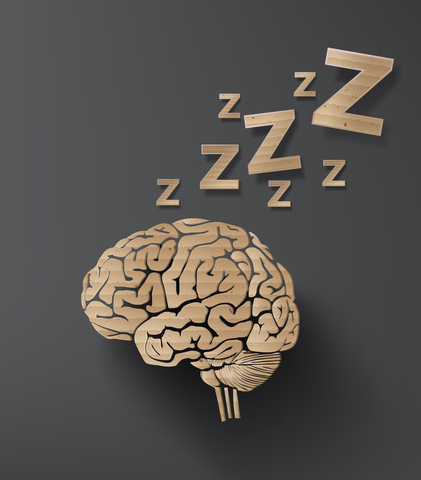
The Zzzz Factor
"It's not lack of time that's the problem; it's lack of direction. We all have 24-hour days." — Zig Ziglar
Mr. Ziglar was making an excellent point with this quote, of course, which is that too many of us are not intentional about how we spend our waking hours; we waste time and then complain we don't have enough of it.
And when those hours wasted leave us with too much to do at the end of any given day, one solution many turn to is staying up a little later in order to get a few more things finished.
For some people, the pressures of their overfilled schedules or their high-demand jobs leave them feeling like cheating sleep is the only way to stay ahead. In reality, there is plenty of research proving that trying to cram more work into the margins of our lives makes us less effective and less creative.

Enter Shawn Stevenson, author of the new book Sleep Smarter: 21 Essential Strategies to Sleep Your Way to a Better Body, Better Health, and Bigger Success.
I caught an interview with Shawn on the Entreleadership Podcast Episode 208, and his scientific data on the importance of quality sleep really struck a chord with me.
I've always been a girl who loooooves a good night sleep. Granted, with kids and cats, there are many, many nights that sleep quality is somewhat lacking, but I always thought the fact that I would mostly get 7 hours a night was good enough. According to Shawn, that's not necessarily true.
He shares that getting optimal sleep is not about sleeping more — some people sleep a full 8 hours and still feel sluggish — but about optimizing your sleep cycle.
The analogy he uses is calories. We all get the idea that not all calories are created equal. We know that 100 calories of broccoli is better for our bodies than 100 calories of potato chips, and the same is true with sleep. 8 hours that are not optimal are like 8 hours of junk-food sleep.
So what is optimal? Shawn shares research to show that each person needs to complete 4 sleep cycles each night. Each of these cycles lasts from 75 - 120 minutes, and it is during this time that the incredibly important hormone melatonin is released. Anything we do to prevent optimal release of melatonin has a negative effect on our overall sleep quality and health.
In fact, Shawn shares that there is research to back the possibility that melatonin is a factor in the prevention of cancer, and is also a factor in the prevention of heart disease and diabetes.
As its title suggests, Shawn's book dives deep into 21 strategies from which we can pick and choose to help achieve optimal sleep habits. Here are four of his suggestions in brief:
Avoid screens before bedtime (30 minutes to an hour). It's been proven that the blue light emitted from our devices increases cortisol, which in turn supresses melatonin and depresses our sleep cycles.
For you Apple users, there is a setting called Night Shift you can deploy to aleviate the blue light. Go to settings --->> Display & Brightness --->> Night Shift and then you can set a schedule. (I set mine for sunset to sunrise).
You're far better off to put down the devices, shut off the television, and pick up a novel. (Side note: studies also show that fiction is better for pre-bedtime reading than books that stimulate our thinking, such as self-help books or professional learning books).
Implement a caffeine curfew. Caffeine elevates stress hormones, including cortisol, and you don't want those high at night for the reason I mentioned above.
Research shows that 200 mg of caffeine (about 1 cup) can lead to one hour of true, quality sleep cycle loss even if consumed 6 hours prior to going to sleep. Caffeine has an 8 hour half-life, so plan that last beverage accordingly.
Keep the bedroom cool. Our bodies are programmed to drop in temperature at night to facilitate sleep, so it's best to keep the room cool to match that. Cool body temperatures release enzymes that aid in better sleep.
Ideally, the room temperature is going to be between 62 and 68 degrees. (Which, unforunately for those of us in the deep South, means a significant use of the air conditioner during the summer!)
Keep the bedroom completely dark. Even if you keep something as benign as a night light on while you sleep, your body can tell. A study at Cornell University had a coin-sized fiber optic light shone on the posterior knee of sleeping study participants, and their sleep cycles were disrupted. Why? Obviously we don't have eyeballs on our knees! It's that our skin has photorecptors that pick up light and send signals to the brain that it might not be time to sleep.
I found Shawn's interview to be completely fascinating, and I've already been intentional about putting into practice these tips he shares. (My family is questioning the arctic-like sleeping temps, but other than that, it's all good!) I've ordered his book, and if you'd like to do the same, you can get it on Amazon by clicking here.
Bottom line: there are 3 main elements to which we must pay attention for our health to be top-notch: the food we eat, the movement we do, and the sleep we get. Food and movement alone will not allow for optimal health — sleep is the X-factor, so don't neglect it.
Actually, it's the Zzz-factor! Sleep tight, y'all!